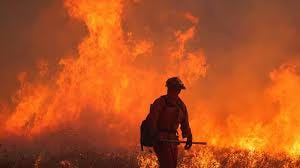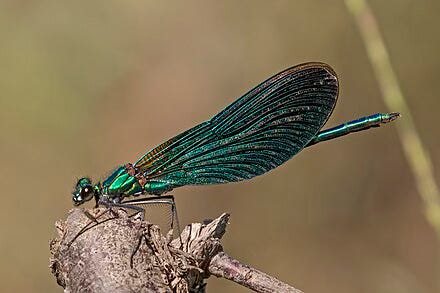Note: You can start reading here or anywhere, then go back. See Table of Contents. Come in the middle? Robert is the narrator who discovers after his wife Lena has died that she had a lover, Isaac. Evan is Isaac’s wife. Robert is on a search for how he lost Lena: He’s creating the story through memory, invention and a search for the truth and his role in what happened—and by stalking Isaac.
Damselfly
Controlled fire destroys in an orderly way. Wildfires destroy as forest fighters try to contain them, as they drive people from their homes in California, Montana, in Colorado, in Arizona, animals in the wilderness of Alaska. Two hundred sixty-eight wildfires had been contained while eighteen large fires burned in eight states, according to the Sunday New York Times that was delivered to my door.
In summer, the Whiting fire department burned down two more wooden bins, the Western Iowa Co-op and the Hunt Brothers elevators. At seven in the morning, they burned the Hunt elevator and two hours later, they burned the Co-op—controlled burns, walls that fell in on themselves.
My mother wheeled my father to the burns in his chair. This time she went because he couldn’t go himself. She could have had Jim Whiting do it, but she said, “He’s too old to be wheeling anything around, including that wheelbarrow he drags around his yard in that townhouse he’s bought up near the nursing home.” No mistake, her mention of the nursing home—her plan, I suspect, is to plant that seed in my head, as if I’d have any say when she decides to put my father there.
I do understand that she might need to put him in the nursing home, but I also know that she’d do it sooner than later because he’s “not blood,” the way she would put it. She’d once said to Lena, “You know my hat collection upstairs on the wall? It’s all hats from blood family. But I was thinking maybe you have one you’d like to give me.” Lena said to me later, “There are two ways to say this: One, I would like your hat for my family collection. And two, the way she said it.” My mother told her with this gesture that she was not blood, would never be. She’d extend her collection, make an exception with a hat from Lena. She mentioned the hats Lena’s mother used to knit. “Maybe one of those?” She wanted that blood link to somehow maintain the collection’s integrity. My father’s World War II cap that he wore in his fighter plane is not on the wall with the others. You see her logic here?
And yet, when we make love, we don’t make love to blood but to the not-blood, and we create blood. I am blood to my mother. Her husband is not. My mother’s logic explains something to me about Lena. The baby she once carried is blood.
My mother said the fire was spectacular black and red and orange. “Black smoke went way north. A woman standing next to me after I moved Dad away from the heat, up near the Beauty Parlor, said to me ‘We saw the smoke from the Interstate. We’re from Seattle. Do you do this often?’” My mother said that made her laugh. I can’t recall a time when I’ve heard her laughter. Her laughter resounds in my head like silence.
My father, who says little these days, spoke on the extension. “Fell perfectly in the middle. As good as those Las Vegas hotels. They implode.”
I didn’t understand.
My mother added, “He’s talking about when they blow them up to tear them down.”
“Right, like that,” he said. “It was something. She was scared.”
“I was, I was,” she said.
Their voices collided on the phone as if the fire they’d seen together stirred something between them. I asked her what the fire smelled like.
“Didn’t smell anything. Every once in a while, I heard something. Walls or boards falling in or oxygen exploding. I thought, How can they control this? Will it get away from them? I was ready to run.”
But there was no need to run. Like the burning of the bin, one nozzle controlled the whole fire, or so my father said after that fire. I saw more hoses and think he was wrong, but I didn’t correct him. He doesn’t like to be corrected. He’s always certain that the way he remembered things is the way things were.
These bins that the town has been burning were constructed in the early 1900s when the house where Lena had rented a room was built. But unlike these brick structures, these old brownstones, the bins were built with two-by-sixes laid on top of one another, the corners tied in by dovetailing. All the bins—the old ones that are now gone—lined the railroad track that runs through the middle of town.
The bins were wearing down, the wood was old with age and lack of repair until the fires took them down, burned them in a sudden forced march to disorder.
I live at the Jarvis, the apartment building I know Lena stood in front of before she was drawn to the Hibiscus on Gershon’s porch.
One day, after Lena had died, Gershon saw what he thought was a black butterfly, but oddly more substantial, larger, smaller winged. I said, “A dragonfly, maybe?” He didn’t think so. “It’s in the ivy and then up on the deck like it lives here.” He said the insect was dark blue or black with what looked to him like lace wings. It was on the ivy when he went back in the house and stepped onto his deck to sit on the steps that led to his basement door and smoke a cigarette. That’s where his pots of ivy sit. They’ve survived the searing cold of two winters and seem able to survive anything, the same pots his wife had planted before she’d died, the same ivy still growing, hanging along his neighbor’s brick wall, the shadowy ivy where he’d seen the black insect. Each year he’s meant to put something else in the pots but each year he’s been more tired, less able to lift the long rectangular, plastic pots off the ledge where they sit, where the ivy comes back without tending, where the ivy has taken over the way he believes loss has taken him over—the loss of his agility, of course. He sat on the step, pulled out a cigarette he knew he shouldn’t smoke and said, “The ivy—it’s still there but everything else she did was lost like her until she came.”
He was referring to his wife who had died and to Lena, who had come. “It gets to me, the inevitability of it all. Sometimes I can’t remember her face. It’s the forgetting that gets to me. Not just old age, fading like old photos. I think it’s time for me to go. Sarah would be fine. I’m not worried about her.”
Sarah is his daughter who’d gone off to school and then to Chicago to study philosophy, the life he doesn’t think he can discuss with her, but of course he’s wrong about that and he’s not wrong about much. “I watch this bug flying around and it makes me think of her. Freda wouldn’t like being compared to a bug.” Freda was his wife. “But it’s the lacy wings that make me think of her, the sewing, the crocheting, the delicate stuff she did. That’s the one thing I never forget. Her hands.” Gershon has lost two-thirds of his lung capacity from smoking since he was fourteen until he’s nearly seventy. The smoke rose from his cigarette. “Why doesn’t it fly away?”
“Sounds like it needs to be rescued,” I said. “Sounds like a damselfly. Have you ever seen one sit on the end of your fly rod when you’re not retrieving, when you’re on the lake thinking about things? If it’s a damselfly, it doesn’t belong here in the city. I don’t think it could be that. I don’t know much about insects. I’m good at identifying the proverbial firefly. So, it’s probably no use asking me.”
“Never been fly fishing,” he said. “Not much into rescue.”
“Ever heard of the blood knot?” I took his cigarette lighter and lit it, pulled a piece of string from my pocket. “You can do a half knot with this trick. See, you take a flame and melt the cut tip of the line so a small ball forms. This can weaken the strength of the knot on the leader—risky, but holds the knot in place once you’ve done the fancy work.”
“Not much fishing, huh? Lots of tying.”
“Depends.”
“Now, that’s something you can say about most everything.”
Like most people if they tell the truth, I do my what ifs. What if I’d done this instead of that? Was I inches away and could have done something sooner?
Lena used to say she always gave a quarter to two men near the Smithsonian—one dignified old man who stood by the subway stop in the middle of the mall who would mumble something about change, but had no cup and an older man who sat on the wide sidewalk on Pennsylvania Avenue with a sign that read “homeless” near the fashionable, popular restaurant Ten Penh and who always thanked her. She said she always said, “You’re welcome, sir.” When I would suggest better ways to help the homeless, giving to a charity, directly to a shelter, for example, she’d say, “But I’m always a quarter away from them.”▵
Table of Contents
Coming next, “The Last Place You Look” Chapter 26
Only Connect, all sections, and this serial novel come from my heart and soul. Consider going paid? You can always change that without fully unsubscribing …
Love,









Beautiful...and the fires...thank you.
Love the interplay between fire and the nature of marital relationships and memory.